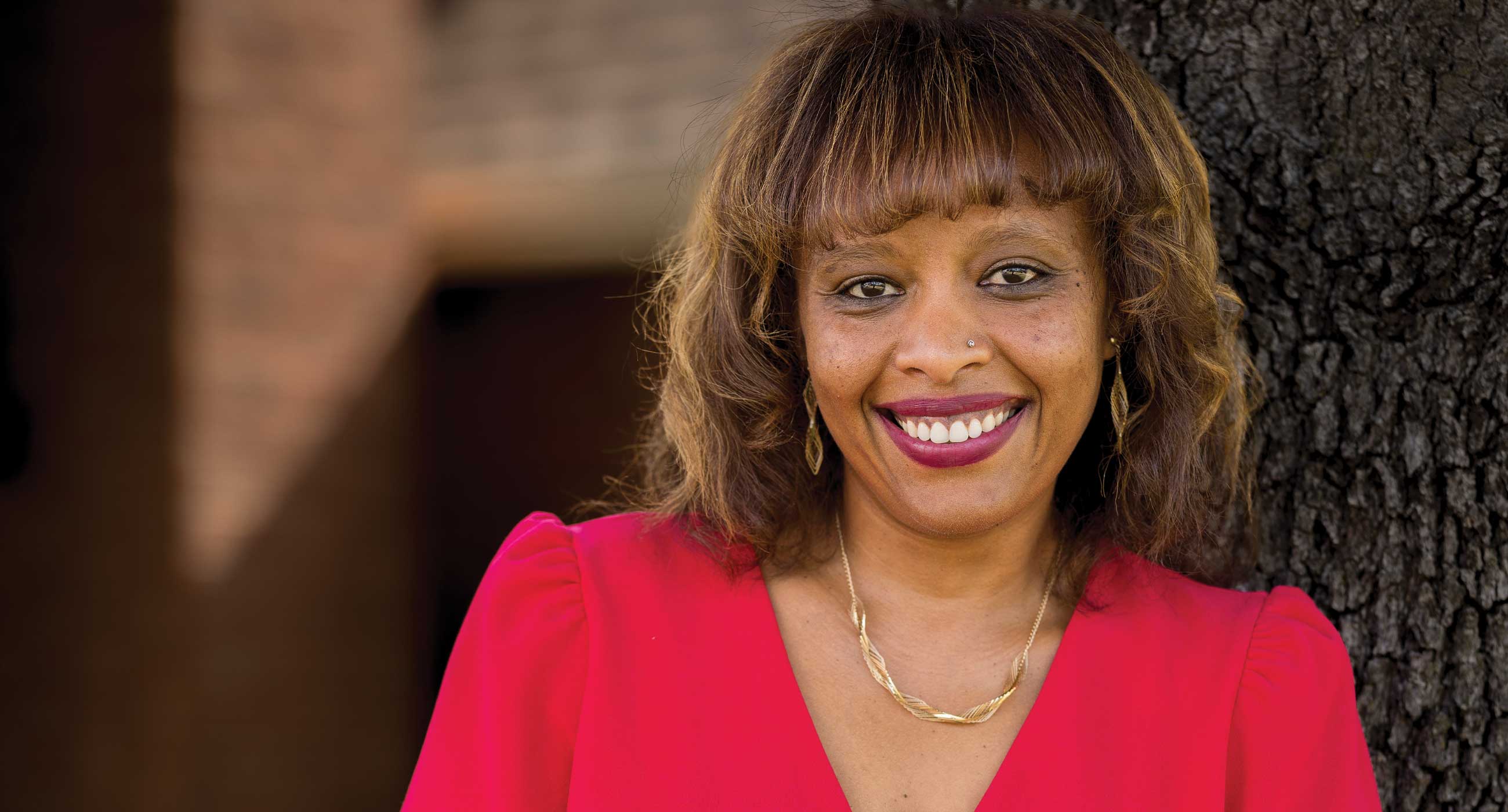Young alumni: Metasebya Solomon
Biomedical engineering PhD alumna Metasebya Solomon attributes her success in biotechnology to many mentors throughout life
Dinkenesh Boku couldn’t read, but she ran her own business selling honey wine in the Ethiopian capital of Addis Ababa. At night, she’d coax her granddaughter to read aloud and quiz her with the kind of math problems she’d confront as a honey-wine merchant.
That influence, in part, is why the granddaughter, Metasebya Solomon, earned a doctorate in biomedical engineering from the McKelvey School of Engineering in 2012, co-founded a biotech company, helped create a patented therapy that could treat sickle cell disease and is nearing a patent on an Alzheimer’s disease treatment.
“She was always good in maths,” Solomon said. “You give her numbers, she would crank it out in seconds — and she made sure I learned. She felt having an education will free you, and the same with my mom. They both made sure they supported me.”
With her love of math sparked, along with a newfound love of biology, Solomon excelled through high school in Ethiopia. Joining her mother in Dallas, she became the first in her family to attend college — first at the local community college, then the University of Texas at Austin — earning a biomedical engineering degree.
A summer minority medical education program persuaded her that direct patient care wasn’t for her.
“I wanted to be behind the curtain,” she said. “I loved biology, and I could still implement biology to heal patients.”
That commitment led her to McKelvey’s biomedical engineering department. Solomon credits three faculty members for guiding her. Joseph Culver, the Sherwood Moore Professor of Radiology, was an adviser on her doctoral dissertation and helped focus her career path.
Another dissertation adviser, Samuel Achilefu, former director of the Washington University Molecular Imaging Center, now chairs the University of Texas Southwestern Medical Center’s biomedical engineering department. He remains a collaborator on her work with the biotech firm she co-founded.
No matter how hard I try, I can never really repay my mom, grandmother, late father and Kassahun Maru, my stepfather, for what they have done for me. I'm going to pay it forward at some point.
— METASEBYA SOLOMON
That firm, D-10 Therapeutics, received a patent in June 2022 for a monoclonal antibody therapy that shows promise in treating sickle cell disease, a painful blood disorder mainly affecting individuals of African, Mediterranean, Asian, Indian and Middle Eastern descent. The firm is working to apply with the U.S. Food and Drug Administration for a clinical trial.
For her path into the business of biomedical engineering, she credits Frank Yin, emeritus professor and former chair of WashU’s biomedical engineering department, and his wife, Grace. They encouraged Solomon to apply for a Whitaker Fellowship in biomedical engineering. As a fellow, she returned to Ethiopia in 2013 intending to work in a public hospital, but soon recognized a greater need for education and training.
She taught master's students about biomedical design and imaging at Addis Ababa University and established a biomedical workshop to prepare the next generation of engineers. The experience solidified her passion to translate knowledge into tangible products, pursue opportunities in industry and, ultimately, co-found D-10 Therapeutics with Louis Jefferson.
Her work, Solomon said, is a form of payback to her grandmother — to whom she dedicated her dissertation —and her mother, Bizunesh Bejiga. Neither lived long enough to see her career flourish: Her grandmother died in 2012, shortly before Solomon defended her dissertation, and her mother died in 2019.
“No matter how hard I try, I can never really repay my mom, grandmother, late father and Kassahun Maru, my stepfather, for what they have done for me,” Solomon said. “I'm going to pay it forward at some point.”

